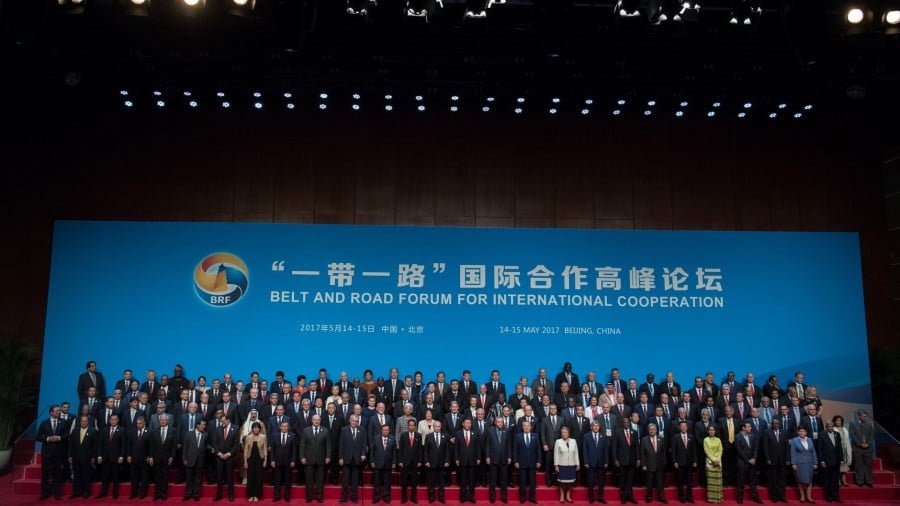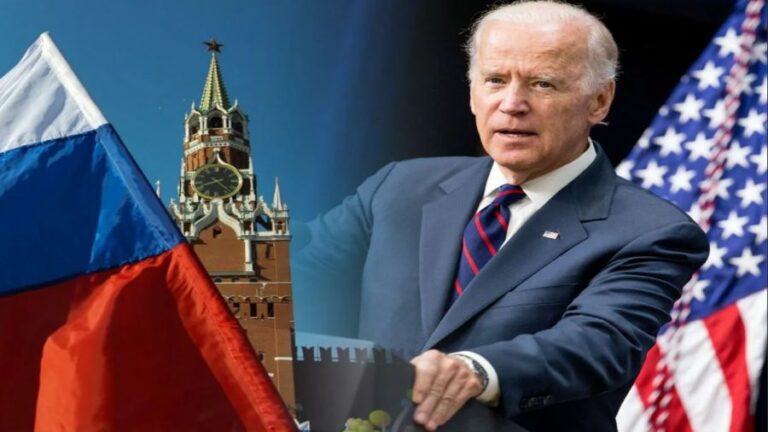Constructive Criticisms of China’s Silk Road
Constructivism criticism from one’s own supporters is oftentimes the most effective way for a country, project, or global vision to improve its shortcomings before they become unmanageable, and it’s with this in mind that such an approach must be urgently undertaken when it comes to China’s Silk Road.
China’s Belt & Road Initiative (BRI) is at the core of the emerging Multipolar World Order and represents the most powerful force catalyzing the full-spectrum paradigm-changing processes of the present day. Its supporters hope that it’ll fundamentally re-engineer global trade routes away from the US and towards China, thereby facilitating the efforts of the People’s Republic and its partners to gradually reform the entire system of International Relations into what many expect will be a more equitable model than the unipolar one that was established after the end of the Old Cold War. For as promising as this global vision is, it’s not without its shortcomings that must be urgently addressed in order to guarantee its survivability and ultimate sustainability in the face of the US’ incessant Hybrid War against it. Bearing this well-intended purpose in mind, the following is a list of the most prominent problems plaguing this initiative, after which corresponding solutions will be proposed for most effectively dealing with them.
——————————————————————————————-
Here’s what’s wrong with the Silk Road:
Blind Belief In The Inevitability Of Success
Influenced by their belief in communism’s self-proclaimed inevitability, practically all proponents of China’s Silk Road are also blinded by the belief that this initiative is equally inevitable as well, but such a mistaken outlook breeds complacency, arrogance, and abuse, all of which are in one way or another responsible for every one of this initiative’s issues.
“Win-Win” Has Turned Into A “Politically Correct” Ideology
Instead of being a motivational slogan reminding all parties of the intended end game behind their Silk Road cooperation, the notion of “win-win” has become a “politically correct” ideology that can’t be reasonably questioned in any case without accusations of trying to “sow discord” between China and its partners, which regrettably promotes a culture of self-censorship that does more harm than good.
Too Much Focus On Economic Benefits And Not Enough On Social Consequences
Partially influenced by the communist ideology and the Silk Road’s “politically correct” win-win slogan, China seems to have placed almost all of its developmental focus on economic benefits while ignoring the social consequences of the many processes that are being unleashed through the Silk Road’s progressive construction.
Nobody Wants To Talk About Chinese Migration To Silk Road States
It’s natural that Chinese nationals will migrate to the most promising places along the Silk Road, but the effect that their sometimes monopolizing practices are having on the local economy and the host population’s reactions to what they believe (whether rightly or wrongly) are ever-expanding “China Towns” in their cities are being ignored by Beijing.
China Is Extremely Susceptible To “Mission Creep”
China depends on the host state to ensure the security of its projects and citizens, but many of these “Global South” militaries are extraordinarily weak and incapable of properly defending those two tantalizing targets from the threat of externally provoked Hybrid Wars, suggesting that private military corporations (PMCs) and possibly even Chinese troops might one day have to be relied upon.
The Silk Road Lacks A Comprehensive Soft Power Strategy
Win-win economic benefits aren’t sufficient enough of promise for securing the Silk Road’s soft security in the face of sophisticated Hybrid War threats that ceaselessly work to manipulate the host’s population against their Chinese partners’ projects and citizens, which is why China must urgently craft a comprehensive soft power strategy for each and every one of them that addresses these issues.
The “Trickle-Down Theory” Isn’t Clearly Articulated
The Silk Road’s “trickle-down theory” of massive infrastructure projects (usually of a connective nature) and loans leading to the betterment of its partners’ people must be better articulated as part of a comprehensive soft power strategy in order for the recipients to properly understand China’s developmental plans for their nation and not be misled by the US into getting any artificially high hopes.
The Catch-22 Of No Project Oversight Or Political Interference
China can’t grant no-strings-attached loans without taking responsibility for the controversial “white elephants” that they sometimes produce because these are easily turned into Hybrid War rallying causes by the US that could then be exploited to destabilize its Silk Road plans, though Beijing must also be careful not to impose too many conditions on its partners like the US, IMF, and World Bank do either.
Debt Management Programs Must Incorporate Perception Management Too
China can’t assume control of its partners’ physical assets in exchange for forgiving their debt and not expect this common creditor practice to be deliberately misportrayed by the US as a “neo-colonial land grab” for weaponized infowar purposes, so it must therefore incorporate preplanned perception management strategies into every one of its debt management programs.
——————————————————————————————-
And here’s what China should do to fix it:
Don’t Underestimate The Many Challenges To The Silk Road
The absolute worst thing that China and any of its partners can do is underestimate the breadth of Hybrid War challenges facing the Silk Road and become oblivious to the many risks involved, as this will inevitably lead to latent threats transforming into irreversible ones that might ultimately endanger the viability of this global initiative.
Encourage Frank But Well-Intended And Respectable Debates About Silk Road Projects
Constructively criticizing the Silk Road isn’t akin to trying to subvert it from within, and the best feedback that China can ever hope to receive about its projects comes from the people who they’ll affect the most, but China and its surrogates mustn’t suppress these voices as long as they engage in well-intended and respectable debate with a view towards improving the Silk Road.
Learn About The Socio-Political Environment Of Every Silk Road State
China can no longer remain ignorant of the many complex socio-political environments that it’s investing in solely because its communist ideology ignores the importance of non-economic (non-class) identity differences, so it must aspire to develop as solid of an understanding of these issues as the US and UK already have.
Prioritize Working With Local Partners Instead Of Exporting Workers And Businessmen
Some of the more “traditional” societies of China’s “Global South” Silk Road partners are ultra-sensitive to the issue of foreign workers and businessmen to the point of being borderline “xenophobic” and easily goaded into demagogue-led mob violence against them, which is why China would do well to prioritize local partnerships in these countries instead of exporting workers and businessmen to them.
Master The Art Of “Democratic Security”
The art of “Democratic Security”, or the hard and soft security strategies for preempting – and if need be, responding to – Hybrid War scenarios, must urgently be mastered by China and taught to every Silk Road countries’ military to ensure that “mission creep” never becomes an issue, with valuable insight into this subject possibly provided by its Russian and Pakistani Great Power partners.
Learn From The Likes Of RT And Russia’s Patriotic NGOs
China can’t craft comprehensive soft power strategies for ensuring the political stability of its Silk Road partners without learning from the perception management techniques pioneered by RT and Russia’s patriotic NGOs, which Moscow masterfully leverages to thwart Hybrid War threats and is another reason why China partner with Russia all across the Silk Road in order to benefit from its experiences.
Deliver Tangible Benefits To Partnered Populations Within Realistic Timeframes
Slogans can only do so much for China’s Silk Road cause before its partners’ populations require that this vision deliver tangible benefits for them in exchange for maintaining their support for their Chinese-friendly governments, so Beijing must ensure that its national development strategies are economically sound and that its soft power instruments successfully articulate the timeframe for these plans.
Prepare For A More Conditional Approach To Silk Road Assistance
There might not be any alternative to China enacting a more conditional approach to the granting of Silk Road assistance in order to make sure that its aid isn’t being abused to fund “white elephant” vanity projects and/or enrich a specific “deep state” clique at the expense of the country’s taxpayers, as this could lead to the cultivation of an easily exploitable Hybrid War environment.
Never Forget That Everything Will Be Politicized
China shouldn’t ever forget for a second that everything related to its Silk Road vision will be politicized by its foes in an attempt to discredit this game-changing series of megaprojects and turn its partners against it, so it must do everything in its power to preempt these scenarios by making skillful use of proper managerial perception management strategies.
——————————————————————————————-
Lastly, here are some conclusions that can be drawn from all of the aforementioned:
China Must Move Beyond Its Ideological And Managerial Comfort Zones
The country’s adherence to the ideology of communism has inadvertently blinded it to the dangers of Hybrid War’s weaponization of identity differences just like its laissez-faire approach to offering no-strings-attached loans to anyone who requested them led to many “redundant” projects, so China must move beyond its comfort zones by thinking outside the box as needed if the Silk Road is to succeed.
Soft Power Shouldn’t Ever Be Underestimated
Identity differences can be kept under control through a “Democratic Security” strategy that incorporates the effective wielding of soft power instruments, but this has to be more sophisticated than parroting the win-win slogan in local languages and airing documentaries that try too hard to emphasize the economic benefits that the Silk Road will bring to the local population.
Sensitivity Must Be Shown For Social Concerns
For as well intended as the Silk Road is, China has yet to show the proper sensitivity for its partners’ social concerns (i.e. identity issues) that it should, though the first step in understanding what needs to be done is to accept that communism’s general disregard for identity differences and over-emphasis on class ones might have unwittingly contributed to these missteps.
Rigid Centralization Won’t Always Work
China learned throughout the course of its astronomical rise across the past three decades that rigid centralization was the most effective means for successfully managing its mostly homogenous population of 1.3 billion people, but this won’t always work in much smaller and more diverse countries along the Silk Road and could actually end up being very counterproductive.
China Needs A Trusted Cadre Of National Elite To Manage The Silk Road Abroad
The ideological and managerial models that work inside the People’s Republic aren’t perfectly transplantable to all Silk Road states and require that China tweak its approach on a case-by-case basis in ways that might not conform to the rigid systems at home, hence the need for a trusted cadre of national elite to flexibly manage the Silk Road abroad without posing latent security risks for Beijing.
Don’t Take Partnered Governments For Granted
China might think that its laissez-faire approach to offering no-strings-attached loans “kills two birds with one stone” by keeping the recipient government loyal to China while also benefiting their people, but it shouldn’t take its partnered governments for granted because corruption and controversial projects could lead to the US exploiting their resultant lack of popular support and overthrowing them.
Encourage Accountability Through Feasibility Studies
It might be very politically sensitive for China to make its Silk Road support conditional on various factors just like the US, IMF, and World Bank do (thereby undercutting one of the most attractive differences vis-à-vis its competitors), so an acceptable workaround to encourage accountability could be through responsible feasibility studies that examine all sorts of scenarios before deciding upon dispersing a loan.
China Can’t Do Everything By Itself
There is no way that China can indefinitely manage the Silk Road by itself without eventually bringing at least several Great Power partners such as Russia, Pakistan, and Turkey to assist in third-party states through their own specific ways via the soft power, security, and socio-cultural (religious) domains, which is why the People’s Republic must begin considering how to equally incorporate them into it.
Refine The Silk Road Vision And Reform It Where Necessary
Nothing in this world is perfect and that certainly includes the Silk Road, so China must realize the need to refine its overall vision and reform it where necessary as new challenges emerge, as the stubborn failure to flexibly do so out of preconceived ideological notions of the “inevitability of success” or whatever else will certainly cause its grand strategy to eventually collapse.








4 Comments